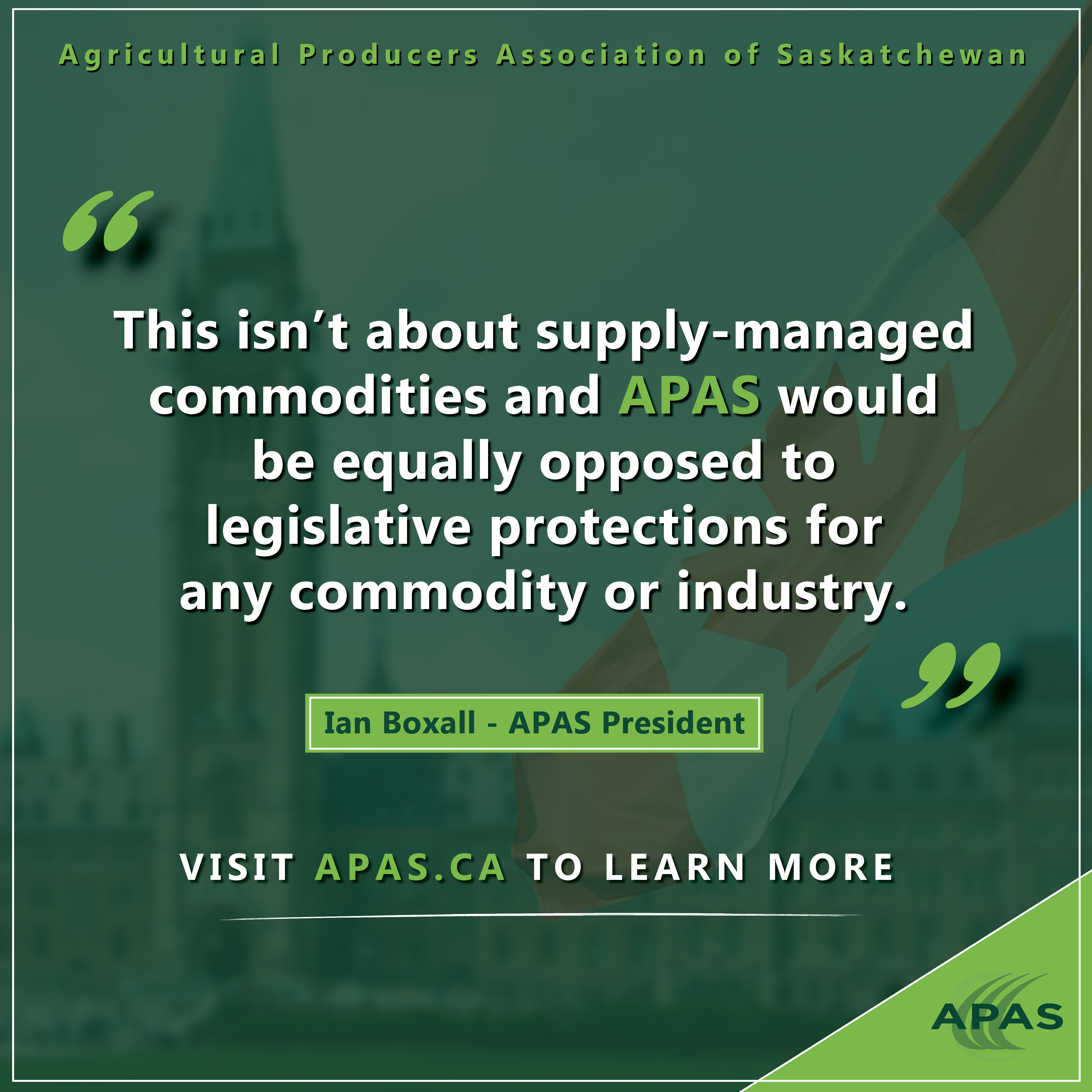APAS Warns Against Trade Consequences of Bill C-282
REGINA, SK — The Agricultural Producers Association of Saskatchewan (APAS) today expressed its concerns about the risks posed by Bill C-282, An Act to amend the Department of Foreign Affairs, Trade and Development Act (supply management), to the broader agricultural community, despite its ongoing support for supply-managed commodities.
While APAS stands behind the crucial role of supply management in ensuring Canadian food security, it cautions that Bill C-282 may inadvertently introduce risks that could affect the stability of other agricultural commodities.
“The supply-managed commodities are vital elements of the agricultural industry, and they are also key to securing Canada's food sovereignty," stated APAS President Ian Boxall. "We unequivocally support these sectors and acknowledge their importance in safeguarding the interests of Canadian consumers and producers. However, Bill C-282 is not about the virtues of the supply-managed system, it’s about trade."
Bill C-282 is generating unnecessary tensions within the agricultural community, and APAS emphasizes the importance of protecting the interests of all farming sectors.
President Ian Boxall stated, "Bill C-282 is a protectionist law that could provoke a negative reaction from our most important trading partners, particularly the USA. With approximately two-thirds of Canada's economy relying on trade with the US, this Bill introduces unnecessary risks that could destabilize our agriculture sector. This isn’t about supply-managed commodities and APAS would be equally opposed to legislative protections for any commodity or industry.”
APAS's main reservations regarding Bill C-282 center on its potential to create market distortions and administrative burdens that could hinder the growth and competitiveness of other commodities not under supply management. "The bill seems to overlook the intricate dynamics between different agricultural sectors and the need for harmonious policy frameworks that propel the entire industry forward," Boxall explained.
APAS believes that moving forward with such legislation could divert attention and resources from more pressing issues facing agricultural producers and calls for a closer examination of the Bill's intent and utility, urging lawmakers to focus on initiatives that genuinely advance the interests of Canada's agriculture sector rather than complicate and cloud the current and future trade landscape.
"Canada already has policies in place to protect supply management during trade negotiations, just like other countries work to protect their sensitive industries. Proponents of Bill C-282 admit that this legislation will do nothing beyond what is currently in place. If it does nothing more, then why are we doing it? Creating a law to protect one sector should not come at the expense of the rest," Boxall emphasized. "Our focus should be about finding a balance that supports supply management and market access for all agriculture commodities in trade agreements."
APAS is committed to engaging with policymakers and stakeholders to address these concerns and to foster a more inclusive dialogue that will ensure the prosperity of all agricultural commodities in Canada.
-30-
For more information, please contact:
APAS Communications
Communications@apas.ca




